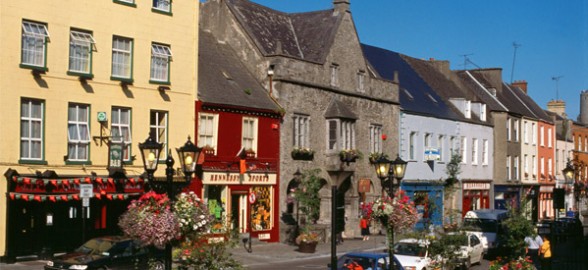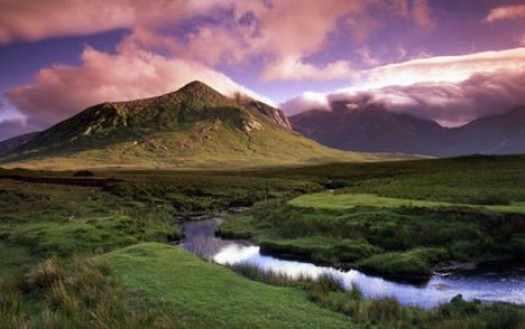Two days after leaving Kinsale I heard my saddest song. Ireland touched me unexpectedly.
My mother’s roots were solidly Norwegian. Her ancestral traditions dominated my childhood. I never gave a thought to the 25 percent of my makeup that’s Irish.
That is, until the day in 2005 I stepped off the plane in Dublin airport. Then every gene fragment in my body that harkened back to one of my two Celtic great grandfathers demanded attention. I was home.
The first morning over breakfast in a B & B outside of Kilkenny I said to our hostess, in my most sprightly manner, “Two of me great grandfadders were Irish.”
After she left our table without responding, my friend Reggie said, “That was a Scottish accent. Maybe you should quit trying to sound like a local.” (He’d know. He was in Scotland with me – Kidnapping Men Part Two.)
Morning number two over breakfast I said to our host, “Two of my great grandfathers were Irish.”
After he left our table without responding, Alan, my husband at the time, said, “I just read in our guidebook that there’re more people of Irish extraction in America than in Ireland. Maybe they’ve heard this before.”
I decided to keep my genetic awakening to myself.
So it’s two days after leaving Kinsale and we’re driving through the open, peat rich countryside of Galway. Reggie’s driving, Alan is next to him and I’m in the back. A CD we bought the day before is playing.
The men are talking about something but I don’t care, don’t even notice the topic, because the song that’s playing, a song I’ve never heard before, is about my two great grandfathers
The lyrics of Kilkelly are lifted from letters written by a father to his son who has moved to America. They span 30 years. When these letters were written, when my ancestors emigrated, not long after the potato famine, you didn’t hop back and forth across the Altantic on a jet. When you left your home and family, you knew you’d never see them again.
That’s what the letters express; the longing for the son the father knows he’ll never see again; the longing for my great grandfathers.
The last stanza is a letter written not by the father but by the son’s brother, telling him their father has died.
The song ends.
Reggie break off his conversation. He says to Alan, almost in a whisper, “Georgia hasn’t said anything in a long time. Is she sleeping back there?”
Alan’s gaze meets mine in the rearview mirror. He says to Reggie, “No. She’s not sleeping. She’s crying.”



tears tears tears
Hi E. Mae: I still can’t listen to more than a few bars of this song without having happen to me what happened to you.
Oh My Georgia,
Such a sweet tale and such a sad sad song. What is it about Irish music that gives it the ability to reach deep into ones heart and pull out such feelings. It has been several hours now since I first listened to the song. I just finished listening once more and the image I have is of you sitting in the back seat of the car crying.
Hi Big Fan: The Irish know a thing or two about suffering, plus the love of words and music is all around them. Several of my favorite plays were written by Irishmen – Pygmalion, The Importance of Being Earnest, Playboy of the Western World, plus there’s a rich crop of contemporary playwrights filling the stage with Gaelic wit and emotion.
So sweet and sad. I had an Irish grandmother who came over with her sister in the 1880s. Never to return. What did she leave behind I wonder? She was a girl of 16 when she arrived to work in a shoe factory. I doubt she was educated beyond the 6th grade. Her granddaughter became a college professor, who never really knew her as they lived in different parts of the country.
Hi Julie: They were so brave, weren’t they, our ancestors who set off on those boats into the unknown. We owe them thanks for their bravery.
What a beautiful story! My Grandmother immigrated from Norway to Minnesota when she was only 17 years old — all by herself. She married and raised 10 children and finally got to go back to her home – but her parents had long since passed away. What a familiar story this must have been. Thanks for sharing!
Hi Kathy: How brave those young women were.